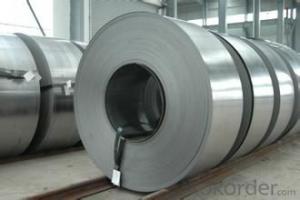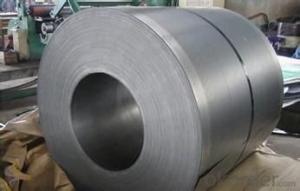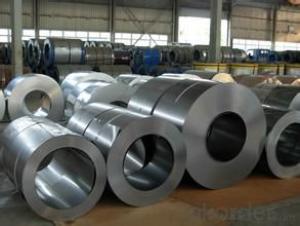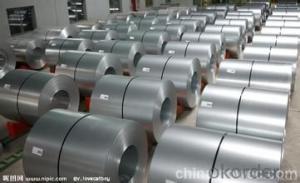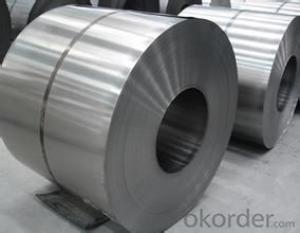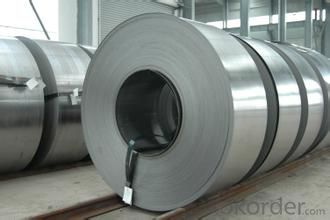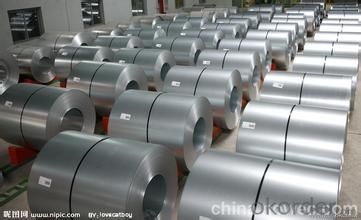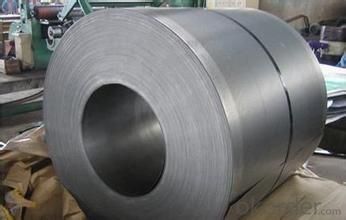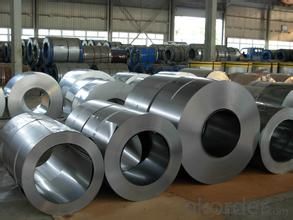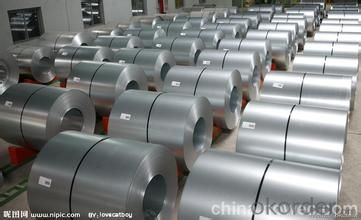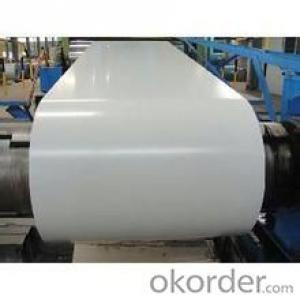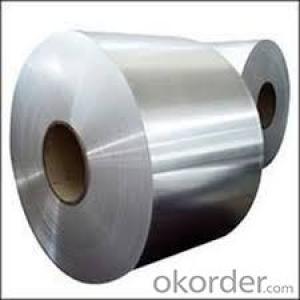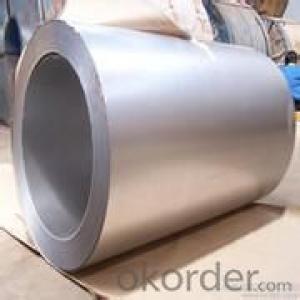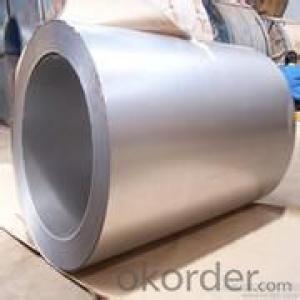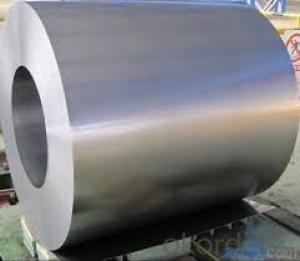excellent cold rolled steel coil / sheet -SPCE
- Loading Port:
- Tianjin
- Payment Terms:
- TT OR LC
- Min Order Qty:
- 30 m.t.
- Supply Capability:
- 5000000 m.t./month
OKorder Service Pledge
OKorder Financial Service
You Might Also Like
Specification:
Thickness: 0.4-2.0mm
2. Width: 900-1250mm
3. Inner Diameter: 508mm
4. Weight of Steel Coil: 3-15MT
5. Heat Treatment: Annealed
6. Margin Status: EC & EM
7. Surface Quality: FB&FC
8. Surface Status: SB & SD
9. Surface Treatment: Oiling
Main Features:
1. Commercial quality suitable for bending fabrication and simple forming; this is the type in greatest demand.
2. Drawing quality second only to that of SPCEN. Excellent uniformity.
3. Deep-drawing quality.With metallurgically controlled grain size, it retains its beautiful finish even after being deep-drawn.
4. Extra-low-carbon steel sheets with highest workability
Application:
1. Refrigerators, cabinets, power distribution baords and drums.
2. Automobile floor and roof panels.
3. Automobile fenders and quarter panels
4. Automobile fenders and quarter panels
Images:
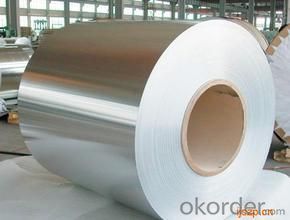
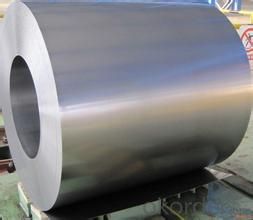
Quality of the goods could be guaranteed. The finished product has a variety of excellent capabilities, such as continuous rolling, degreasing, annealing, skin pass, slitting and cut to length line etc. Along with it many rocessing capability and smooth, flat surface. It’s widely used in outdoor and interior decoration, furnishing
- Q: What are the benefits of using coated steel coils in roofing applications?
- There are several benefits of using coated steel coils in roofing applications. Firstly, coated steel coils offer exceptional durability and resistance to corrosion, making them highly suitable for outdoor use. This helps to prolong the lifespan of the roofing system and reduce maintenance costs. Additionally, the coatings provide excellent weather resistance, protecting the roof from harsh elements such as UV rays, rain, snow, and hail. Coated steel coils also offer a wide range of colors and finishes, allowing for greater design flexibility and aesthetic appeal. Furthermore, these coils are lightweight, which facilitates easier installation and reduces the overall weight load on the structure. Overall, using coated steel coils in roofing applications ensures long-lasting protection, enhanced aesthetics, and reduced maintenance requirements.
- Q: i'm looking into pedal steel guitars, and I would like some suggestions or links and info on what kind i should get.
- Try okorder -The Art of Steel Guitar/ Steel guitar players -Take it away Leon- McAuliffe and 'Speedy West' were a couple greats. In the late '50s, Speedy was playing a Fender 1000 Pedal steel. He often did duets with Jimmy Bryant The Fastest Guitar Player In The Country! / note also the 'Emmons Guitar Company':
- Q: What is the role of steel coils in the manufacturing of agricultural machinery?
- Steel coils play a crucial role in the manufacturing of agricultural machinery as they are used to fabricate various components and parts such as frames, chassis, blades, and implements. The high strength and durability of steel make it an ideal material for withstanding the harsh conditions and heavy-duty applications that agricultural machinery often faces. Additionally, the versatility of steel coils allows manufacturers to customize and shape them into different forms and sizes, ensuring the production of reliable and efficient agricultural machinery.
- Q: i wanna buy a sharp carbon steel sword the swords i want are a 200 layer carbon steel katana or a hand forged high carbon steel katanna or a hand sharpened sword which one would be sharper/stronger
- Carbon steel is a generic term. There are many different grades of carbon steel consisting of several different components of various amounts, and there are different types of treatment the steel can go through that changes it's quality. Carbon steel swords are a step up from the crappy stainless steel swords, and other alloys. Sword quality completely depends on the smith. 200 layers doesn't mean there won't be any imperfections. Sword makers make mistakes, especially the lesser experienced ones. Look into the maker(s) of the sword you're looking to buy. Find information on them before deciding. Carbon steel is the steel to have, but that doesn't exclude good or bad quality. Sharpness will depend on the the steel and the smith.
- Q: which pokemon has the most steel pokemon???
- Robopon ;) Transformers? really... fail joke, Robopon is essentially pokemon with robots ;) But on-topic, i believe Platinum would be your best choice.. from memory, it had no end of steel and steel-hybrids.
- Q: How are steel coils inspected for yield strength using tensile testing?
- Steel coils are inspected for yield strength using tensile testing by taking a sample from the coil and subjecting it to a controlled force until it reaches its yield point. The force required to cause permanent deformation in the sample is measured, and this value represents the yield strength of the steel coil.
- Q: How are steel coils used in the manufacturing of electrical wiring?
- Steel coils are not typically used directly in the manufacturing of electrical wiring. However, steel coils can be used in the production of wire drawing machines, which are used to stretch and shape the copper or aluminum wire used in electrical wiring.
- Q: How are steel coils used in the manufacturing of industrial conveyors?
- Steel coils are used in the manufacturing of industrial conveyors as the primary material for the conveyor belts. They are formed into circular shapes and then cut into strips to create the belt. Steel coils provide strength, durability, and flexibility to the conveyor belts, allowing them to withstand heavy loads and operate smoothly.
- Q: Have spent two days making a specialized knife out of 304 stainless steel, after throwing into a log it bent slightly arghhhh. Is it worth continuing to finish it off or start all over again with different kind of steel if so which kind should i use.
- Stainless Steel For Knife Making
- Q: Are steel coils used in appliances manufacturing?
- Yes, steel coils are commonly used in the manufacturing of appliances. They serve as a key component in various appliances such as refrigerators, washing machines, and dryers, providing structural strength and stability to the overall product.
Send your message to us
excellent cold rolled steel coil / sheet -SPCE
- Loading Port:
- Tianjin
- Payment Terms:
- TT OR LC
- Min Order Qty:
- 30 m.t.
- Supply Capability:
- 5000000 m.t./month
OKorder Service Pledge
OKorder Financial Service
Similar products
Hot products
Hot Searches
Related keywords
